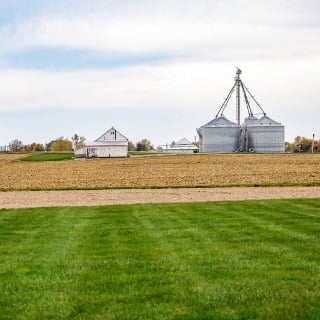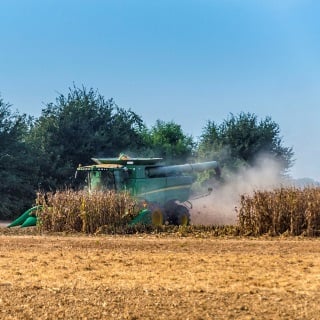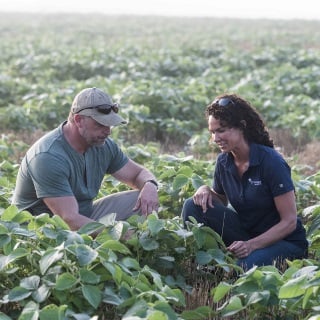When Emmanuel Wallace graduated from high school four years ago he had something few of his fellow classmates did: a concrete plan. He already knew he wanted to be a biomedical engineer and was accepted at the University of Memphis, where he had his engineering classes mapped out.
But then he met Bambi.
“She was a baby goat!” Wallace quickly explains with a laugh. After spending the summer at a program run by Tennessee State University that had Wallace working and conducting research on a farm – where he fed Bambi each day – everything changed. “I really loved it, I loved being on the farm and learning about agriculture and farming. It really interested me.” It didn’t take long for Wallace to scrap his long-planned engineering career and enroll in agriculture courses at Tennessee State University, an Historically Black College and University (HBCU) over three hours away in Nashville.
As cute as everyone can agree Bambi was, agriculture seemed an unlikely path for a kid from the historic Orange Mound neighborhood of south Memphis who hadn’t previously set foot on a farm. Family and friends questioned the change, but Wallace held firm. “They were asking me every day, ‘Ok, Emmanuel, what are you going to do with an agriculture degree?’ And I said, ‘I don’t know, but this is where I’m supposed to be.’”
Four years later, Wallace’s unique story caught the attention of the Farm Credit Mid-America internship program, which has a dedicated Launching Leaders program for students at HBCUs. The program provides a $3,500 stipend to current students and recent graduates to encourage people of color in the field of agriculture. Wallace spent the summer of 2021 working on Farm Credit’s small loan application process to make improvements for both customers and team members.
Wallace also worked on a Farm Credit project partnering with a national youth organization to bring school-based hydroponic farming into Memphis to address the issue of food deserts, which are areas with limited access to affordable and nutritious food. Hydroponic farming, which involves growing crops without soil, is particularly useful in urban areas where land can be scarce. The project resonated with Wallace’s own experiences growing up without ready access to healthy food options. “Orange Mound, where I grew up, is a food desert and I wanted to make sure that kids growing up in that neighborhood have better options than I did.”
To that end Wallace met with teachers and counselors at East High School – where he graduated salutatorian in 2018 – to begin discussions to create a hydroponic farm to address food insecurity. He went so far as to bring in TSU to assist with the ongoing creation of the project.
Andrew Melton, Wallace’s mentor in the internship program and a regional vice president for agricultural lending with Farm Credit Mid-America, said that while Wallace didn’t grow up on a farm or have an agricultural background, that proved to be an asset rather than a hindrance. “We learned a lot from his projects. To have him come in with a fresh mindset, new ideas and asking great questions, it made us think differently about things. It was very exciting to see all the dots connect for Manny during his time with us and I’m even more excited to see what Manny does in the future to impact his community and agriculture.”
After switching concentrations several times within his agriculture major Wallace found that the Farm Credit Mid-America internship helped him solidify his focus for the future into one dedicated to agricultural policy. His plan after TSU is to get a master’s in public administration to hone his political science skills, which he hopes will ultimately lead to a job affecting change. “Most of the time agriculture, especially with policy, is tied to farmers and the rural communities because that’s where agriculture is. But at the same time certain policies also affect the inner-city communities and we need farming programs so we have access to fresh food as well.”
With all Wallace’s successes and plans he hasn’t forgotten about Bambi, the baby goat that started it all. He still visits the TSU farm that inspired his switch to agriculture, which Bambi still calls home, and whose growth has seemingly mimicked Wallace’s pathway in agriculture. “When I last saw her she was really big!”






